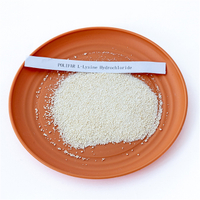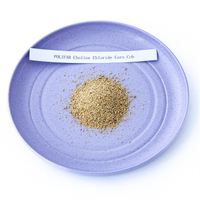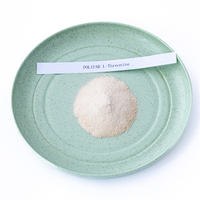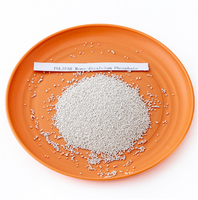Views: 0 Author: Site Editor Publish Time: 2024-02-28 Origin: Site








Welcome to Polifar’s exploration of cyclamate from a wholesale perspective. In this article, we’ll dive into the history, production technology, applications, calorie content, benefits, and potential health risks associated with cyclamate, focusing on how Polifar’s wholesale products meet the needs of the food and beverage industry.
Cyclamate E952 is an artificial sweetener. It is the sodium salt of cyclohexylsulfamic acid, a compound synthesized from cyclohexylamine and sulfamic acid.
It is 30 to 50 times sweeter than sucrose (table sugar), so only a small amount is needed to achieve the desired sweetness. It is often combined with other sweeteners, such as saccharin, to create a synergistic effect and improve taste.
Cyclamate is stable under a variety of conditions, including heat and acidity, making it suitable for use in a variety of foods and beverages. Cyclamate is a great alternative to sugar if you are looking to reduce calorie intake or manage diabetes. However, as a food additive, it is important to consume it in moderation.
Sodium cyclamate, discovered in 1937, gained recognition as a sweetener in the 1950s. Initially patented by Abbot Laboratories, it received FDA approval in 1951. Despite its popularity, concerns about its safety emerged, leading to a ban in the US in 1969. However, it remains permitted in over 100 countries, subject to regulatory limits and ongoing safety assessments.
Sodium cyclamate is typically produced through the reaction between cyclohexylamine and sulfamic acid, resulting in the formation of cyclamic acid. This acid is then neutralized with sodium hydroxide to produce sodium cyclamate. The process involves careful control of reaction conditions and purification steps to ensure product quality and compliance with regulatory standards.
1. Food and Beverage Industry: Sodium cyclamate is widely used as a non-nutritive sweetening agent in various food and beverage products, including soft drinks, desserts, confectionery, and tabletop sweeteners.
2. Diet and Diabetic Products: Due to its high sweetness level and low-calorie content, sodium cyclamate is often incorporated into diet and diabetic-friendly products as a sugar substitute, allowing individuals to enjoy sweetened foods and beverages without significantly impacting their calorie or carbohydrate intake.
3. Pharmaceuticals: Sodium cyclamate may also find applications in pharmaceutical formulations, where it can be used to mask the bitter taste of certain medications or to improve the palatability of oral suspensions and syrups.
4. Cosmetics and Personal Care Products: In some cases, sodium cyclamate may be used in cosmetics and personal care products to enhance the sensory properties of the product, such as sweetness or flavor, in items like lip balms or toothpaste.
5. Industrial Applications: Sodium cyclamate may have applications beyond the food and beverage industry, such as in industrial processes where a non-caloric sweetener is required, or in research laboratories for specific scientific experiments.
Overall, sodium cyclamate's versatility and sweetness make it a valuable ingredient in a wide range of consumer products, contributing to the development of innovative formulations that meet the needs and preferences of diverse markets.
The benefits of sodium cyclamate primarily revolve around its role as a non-nutritive sweetener:
1. Low Caloric Content: Sodium cyclamate provides sweetness without adding significant calories to foods and beverages, making it suitable for individuals looking to reduce their calorie intake or manage their weight.
2. Diabetic-Friendly: As a non-nutritive sweetener, sodium cyclamate does not affect blood glucose levels, making it a suitable sugar substitute for individuals with diabetes or those following a low-carbohydrate diet.
3. Palatability: Sodium cyclamate enhances the taste and palatability of foods and beverages by providing sweetness without the undesirable aftertaste associated with some other sweeteners.
4. Stability: Sodium cyclamate is heat-stable and can withstand a wide range of processing conditions, making it suitable for use in various food and beverage applications, including baking and cooking.
5. Cost-Effectiveness: Sodium cyclamate is often more cost-effective than natural sweeteners like sugar or honey, allowing food manufacturers to produce sweetened products at a lower cost.
Overall, sodium cyclamate offers a convenient and affordable way to sweeten foods and beverages without compromising on taste or caloric content, making it a valuable ingredient in the food industry and for individuals seeking healthier dietary options.
The health risks associated with sodium cyclamate have been a subject of debate and research for decades. While regulatory agencies like the FDA and EFSA have deemed it safe for consumption within specified limits, some studies have raised concerns:
1. Cancer Risk: Early studies in the 1960s suggested a potential link between cyclamate consumption and bladder cancer in laboratory animals. However, subsequent research has failed to establish a definitive connection in humans.
2. Metabolic Effects: Some research indicates that sodium cyclamate may affect glucose metabolism and insulin sensitivity, potentially impacting individuals with diabetes or metabolic disorders. However, the clinical significance of these findings remains uncertain.
3. Allergic Reactions: In rare cases, individuals may experience allergic reactions to sodium cyclamate, resulting in symptoms such as skin rashes, itching, or gastrointestinal discomfort.
4. Other Health Concerns: While sodium cyclamate is generally recognized as safe, excessive consumption or prolonged exposure may lead to adverse effects, including digestive issues or disruptions in gut microbiota balance.
Overall, while sodium cyclamate is considered safe for consumption by regulatory authorities when used within recommended limits, individuals need to moderate their intake and consider potential health risks, especially if they have specific health conditions or sensitivities.
As a leading wholesale supplier, Polifar offers a full range of sweetener products including cyclamate, sucralose, aspartame, xylose, saccharin sodium, and more. Our bulk sweetener solutions are tailored to meet the needs of food and beverage manufacturers, providing cost-effective ingredients for a variety of applications.
In summary, cyclamate is an important ingredient in the food and beverage industry, providing a convenient way to sweeten products without adding sugar calories. With Polifar's wholesale cyclamate solutions, manufacturers have access to high-quality ingredients that meet their specific requirements to create delicious, healthy products for consumers around the world. Browse our website to learn more about our cyclamate products and how we can support your business needs.






